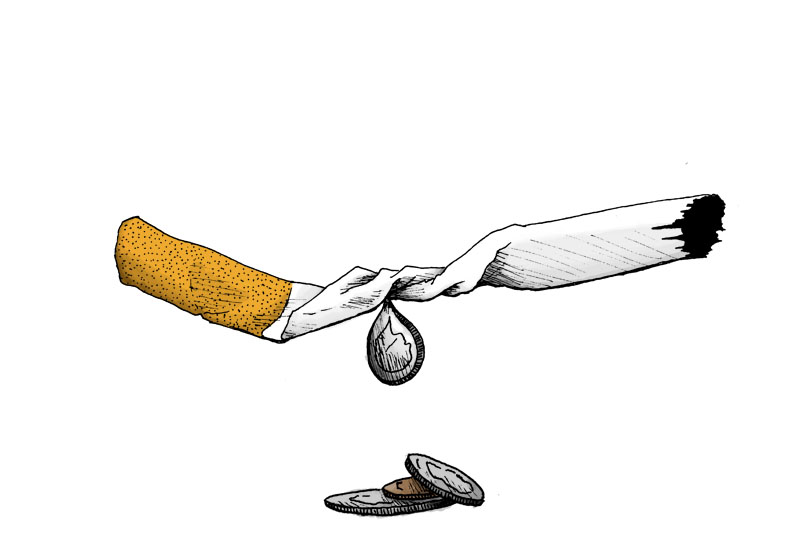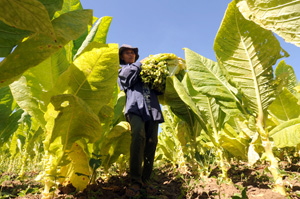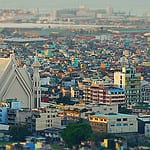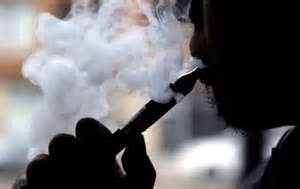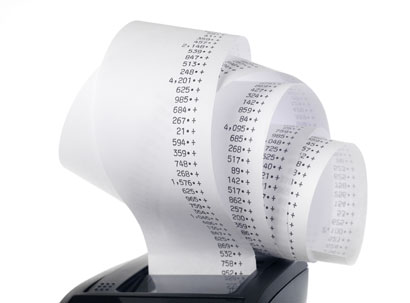The prices of Iranian cigarettes are due to increase by 50 percent following a parliamentary addendum to the government’s proposed budget for the next fiscal year (March 2018-19), according to a story in The Financial Tribune quoting the head of the Tobacco Planning and Supervision Center.
Ali-Asghar Ramzi said also that the price of foreign cigarettes made in Iran would rise by 10 percent.
The duty on locally- and jointly-produced Iranian cigarettes, and on products with international brand names would increase by 350 rials (US$0.76), while 500 rials would be added to the duty on imported cigarettes.
Close to 40 billion cigarettes were produced in Iran during the first 10 months of the current Iranian year, which began on March 21, 2017, up 12 percent on the output of the corresponding period of the previous year.
During the same period, cigarette imports fell by 35 percent to 2.4 billion, while cigarette exports increased by about 12 percent to 330 million.
Close to four billion cigarettes were estimated to have been smuggled into the country during the 10-month period, down 41 percent on the number smuggled in during the corresponding period of the previous year.
Iranians consumer about 55 billion cigarettes a year.
Last year, Iran produced about 45 billion cigarettes and there are plans to increase this figure to 50 billion by the end of the current year, March 20, 2018.
Category: Taxation

Price hike due in Iran

Tax regime could backfire
A tobacco growing and processing firm yesterday urged the Philippines’ government to assess the effects of its first tax reform package before raising duties further, according to an ABS-CBN News story.
Tobacco demand had dropped since taxes were raised in 2012 and would likely go down further after this year’s duty increase, the president of Universal Leaf Philippines, Winston Uy, was quoted as saying.
“Imposing an additional tax hike will result to even less tax collection, Uy said. “Consequently, this will decrease generated revenues, part of which goes to health coverage for the poor.
“Tobacco gives the biggest contribution to the government through livelihood and employment. Why focus [on] tobacco alone? Why not focus [on] other products that contribute less than tobacco?”
Under the second package of reforms, the government will not submit its own proposal on tobacco excise taxes but will instead support a bill filed by Senator Manny Pacquiao, the Department of Finance said in a statement.
Pacquiao is seeking a unitary cigarette excise tax of P60 this year and a mandatory nine percent annual increase.
‘Go after the SMUGGLERS’
The Philippines should go after smugglers rather than raise taxes on cigarettes, Japan Tobacco said yesterday as the Duterte government prepared its second tranche of tax reforms, ABS-CBN News has reported.
The president of Japan Tobacco International Philippines, Manos Koukourakis, said he had seen for himself how sellers of smuggled cigarettes were “ubiquitous” at a Davao public market.
‘Instead of raising taxes and going after the very legit companies like JTI Philippines… why don’t we better go after the SMUGGLERS!!!’ Koukourakis reportedly said in a text message to ABS-CBN News.
‘It will be good for the government, far better for those … [who] choose to smoke and not against the legitimate industry.’
Japan Tobacco recently acquired the Filipino manufacturer of cheap cigarettes, Mighty Corp, which had settled a tax evasion case with the government for P25 billion.
The first tranche of tax reform that took effect on January 1 included higher duties on cigarettes, fuel, sugar-sweetened drinks and cars to offset a reduction in personal income tax rates and help fund the President’s P8 trillion infrastructure program.
Under a 2012 law that restructured levies on tobacco products and spirits, the current P30 tax per pack was to be increased annually by four percent from January 1, 2018.
The government will not submit its own proposal on tobacco excise taxes in respect of the second package of reforms, but will instead ‘support’ a bill filed by Senator Manny Pacquiao, according to a Department of Finance statement.
Pacquiao is seeking a unitary cigarette excise tax of P60 this year, and a mandatory nine percent annual increase.
High taxes = low smoking
The United Arab Emirates should raise taxes on tobacco to curb smoking and tobacco use, a researcher said during the Arab Health Conference in Dubai yesterday, according to a Gulf News story.
Professor Scott Sherman, associate professor of medicine at NYU School of Medicine, said the higher the taxes, the lower the tobacco use rate.
The visiting US expert conducts regular research in the UAE, which in October imposed a 100 percent excise tax on tobacco.
Prices were pushed even higher after a five percent Value Added Tax was levied from January 1 on most goods, including cigarettes.
The Times said that, extrapolating World Health Organization estimates, the impact of the tax rises should see tobacco consumption falling by 40 percent.
It quoted the WHO as saying in September that a tax increase that raised tobacco prices by 10 percent reduced tobacco consumption by about four percent in high-income countries.
In the UAE, home to about 10 million people, the prevalence of smoking among those aged 15 or more is 28.6 percent in the case of men and 0.7 percent in the case of women, according to WHO.
Sherman said also that the UAE had taken “wonderful steps in the right direction” when it came to banning tobacco advertisements and placing graphic warnings on cigarettes packs.
However, he added, the country should “broaden clean-air laws” by completely banning smoking inside “restaurants and bars”, doing away with “smoking enclaves”.
“If Ireland can go smoke-free [indoors], which has a pub culture, there’s no reason it can’t be done here,” Sherman was quoted as saying.
Heated tax call
The Irish government has been urged to tax heat-not-burn (HNB) products at the highest rate imposed on tobacco products, according to a story by John Downing for the independent.ie.
Colm Brophy, a Fine Gael member of Ireland’s lower house of parliament, has called for these products to be taxed at the same rate as is imposed on combustible cigarettes, once they are introduced to Ireland.
“Heated cigarettes are the latest gimmick from the tobacco industry,” he said. “Rolls of tobacco are heated and smoked after insertion into an electronic device,” he claimed.
“They are being marketed at young people and it is expected that tobacco companies will introduce heated cigarettes to Ireland in the very near future.
“At the moment, there is no common EU definition on taxation of heated cigarettes.
“That is why Ireland should put in an additional stand-alone category of taxation for heated cigarette products …,” he said.
Brophy said such a tax rate would protect government revenues.
“The State should not be ‘subventing’ the profits of tobacco companies by giving them lower taxation rates on this product, such as the lower rates of tax on other tobacco products, including rolling tobacco and pipe tobacco,” he added.
Taxing vapers
Indonesia has said that it will impose a 57 percent tax on non-tobacco alternatives to traditional tobacco cigarettes from the summer, according to a story in The Jakarta Post.
The announcement has sparked criticism that the government is siding with major tobacco companies at the expense of public health.
Electronic-cigarette cafés have been opening across Indonesia in recent years but the fear is that the new tax could strangle this nascent sector.
Rhomedal Aquino, spokesman for the Association of Indonesian Personal Vaporizers, was said to have told Agence France Presse that whereas his association agreed with using tax to control consumption, a 57 percent duty was too high. It would kill a growing industry.
“It will make us look like a killing machine when we’re not,” he said.
Meanwhile, Hasbullah Thabrany, a health expert and advisor to the National Commission on Tobacco Control, warned that while customs and excise law required that the government set taxes on such products, it was possible that the authorities were using the levy to take sides.
“I do believe that the policy sides with the [tobacco] industry,” he said.
The tobacco lobby in Indonesia is strong. The country’s trade minister Enggartiasto Lukita caused a backlash from anti-smoking groups in November when he suggested tobacco farmers would be hurt by the fledgling industry, and that those turning to e-cigarettes should smoke regular cigarettes instead.
“We should turn vapers into conventional cigarette smokers,” he said at the time.
Indonesia’s customs office said it hoped the tax hike would make e-cigarettes unaffordable for children, while the health ministry said it was not sold on the argument that vaping was safe. “E-cigarettes are just as dangerous and can be even more carcinogenic” than regular cigarettes, said senior ministry official Muhammad Subuh.
“We reject both conventional and electronic cigarettes — it’s better to quit smoking altogether,” he said. “There is no such thing as ‘less dangerous’ when it comes to smoking.”
Sales, revenue down
Volume cigarette sales in South Korea fell by almost four percent in 2017 from those of a year earlier, according to a story in The Korea Herald citing finance ministry data.
It was not clear where the ‘almost four percent’ figure came from however. The country’s smokers were said to have bought 3.45 billion 20-piece cigarette packs last year, down from 3.66 billion packs the year previously. Such a decrease would suggest a fall of between five and six percent.
At the beginning of January 2015, a tax-led increase saw the retail price of cigarettes rise by 80 percent, from 2,500 won ($2.25) per pack to 4,500 won.
The government collected 11.2 trillion won ($10.5 billion) in taxes from cigarette sales last year, down 9.2 percent from the previous year’s 12.4 trillion won.
Duty-free conference
The Middle East and Africa Duty Free Association (MEADFA) Conference is due to be held on January 29-30 at the Jumeriah Creekside Hotel in Dubai, according to a note in the TFWA Newsletter.
The TFWA said that this year’s MEADFA Conference was due to examine how economics, demographics and the broader business scene were affecting duty free and travel retail across the Middle East and Africa.
The speaker line-up is said to include strong industry representation, including the official Conference host, Dubai Duty Free’s COO Ramesh Cidambi, who is due to offer his thoughts about the current trading environment.
The findings from two new studies commissioned for MEADFA are scheduled to be presented at the Conference.
Counter Intelligence Retail are said to have investigated the behaviour of key traveling nationalities in the Middle East, exploring spend, purchase motivations and conversion rates.
And in a broader, macro-based view of the region, Emerging Markets Intelligence & Research is due to report on growth projections, consumer spending, government and corporate strategy throughout the region.
E-cig, HNB excise opposed
The EU Commission believes that excise tax should not be applied to electronic cigarettes or heat-not-burn (HNB) products, according to a story by Sarantis Michalopoulos for euractiv.com.
Given the tobacco market’s shift away from traditional tobacco and toward new generation products such as e-cigarettes and HNB devices, and in the light of new developments in the illegal tobacco trade, the EU Council asked the Commission in March 2016 to come up with a proposal on the revision of the Tobacco Excise Directive.
This legislation sets out harmonised rules on the rates of excise duty applied to manufactured tobacco across the EU.
E-cigarettes and other novel products are not covered by the directive and the member states asked the Commission to conduct a study to explore the possibility of imposing excise taxes on them.
But, due to the availability of only limited data on these products, the Commission decided not to propose a harmonised approach until further information was available.
The Commission said that it would re-examine the situation in the next regular report on tobacco taxation, which is due in 2019.
Tobacco revenue increased
The Philippines’ government is expected to generate about P183.2 billion in revenue from excise taxes on cigarettes and alcoholic beverages this year, according to a story in The Philippine Star citing data from the Department of Finance (DOF).
DOF figures indicate that P126.97 billion of the Bureau of Internal Revenue’s (BIR) income this year is projected to come from tobacco excise tax.
This would be 13.78 percent higher than the 2016 income from tobacco taxes, P111.59 billion.
The DOF projects that another P56.23 billion will this year be provided by alcohol excise tax.
This would be 9.90 percent higher than last year’s alcohol-tax revenue of P51.16 billion.
The increases in the excise tax revenues from tobacco and alcohol were said to have been brought about by the enactment of the Tax Reform for Acceleration and Inclusion Act.
Meanwhile, the BIR is gearing up for the implementation of a new revenue stamp system for tobacco and alcoholic products.
The finance undersecretary Antonette Tionko said the new designs for tobacco tax stamps and the newly-crafted tax stamp system for alcoholic drinks would be implemented within the first quarter.

